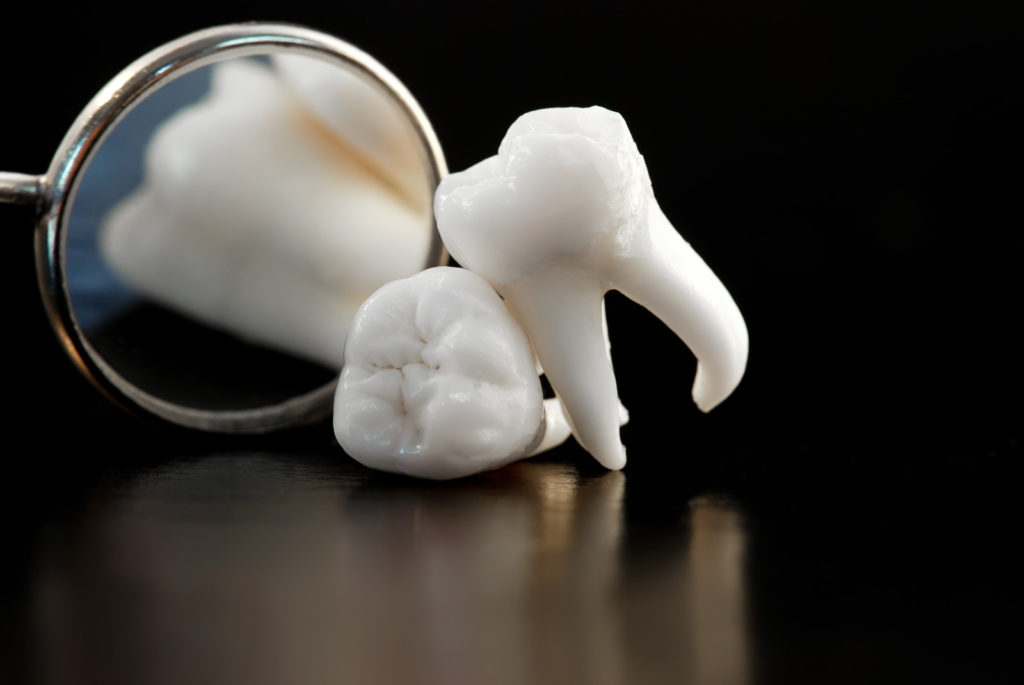When all else is equal, your dentist will always try to preserve your natural teeth. A tooth extraction in Lethbridge is not always necessary or appropriate. After all, every time a tooth is pulled the patient undergoes an invasive (albeit routine) procedure and will need to consider a tooth replacement later. Sometimes, though, performing a tooth extraction near you is the best and only appropriate option for a dentist. Here, we’ll explain when performing a tooth extraction is the right call.
But first, what is a tooth extraction exactly?
Getting a tooth pulled sounds straightforward enough, but there’s more to it than you might realize. There are two types of extractions (simple and surgical) and the goal is always to remove your tooth from its socket (called a dental alveolus) while causing as little as possible trauma to the tissues on and in your jaw.
A simple extraction is when the tooth being pulled is visible to the dentist. If the tooth is not visible or accessible to the dentist (in the case of an impacted or unerupted wisdom tooth, for example) removing that tooth is done through a surgical extraction.
When you think of a tooth extraction, don’t pull up an image of an old Western movie in your mind’s eye. It’s important to take care when recovering from tooth extraction, but the procedure itself is performed painlessly.
When is having a tooth pulled the right call?
If your tooth decay is deep and severe, extraction is the right call
If tooth decay is spotted early enough, removal of the decayed material and patching it up with a filling is enough. If it’s too late for a filling because an infection has set in, a dentist near you may recommend root canal therapy so your tooth can be saved. Sometimes, though, decay and infection have spread too far to be treated with a root canal. In that case, only extraction will prevent further harm.
If molars have become impacted, extraction is the right choice
Sometimes permanent teeth — especially molars and particularly wisdom teeth — do not emerge from your jaw properly, but become impacted (meaning stuck in your jaw or lodged under other teeth). To eliminate the pain and disruption of other teeth caused by impacted molars, those impacted teeth should be extracted.
If you’re suffering from advanced periodontitis, tooth extraction may be necessary
Gum disease is preventable and, in its minor stage referred to as gingivitis, reversible. If gum disease advances into periodontitis, though, it can destroy gum tissue and eventually leave insufficient gum tissue to support the tooth. At that stage, periodontitis can not be reversed by good hygiene alone. It may be necessary to extract the tooth before it falls out in the face of an advancing infection.
If your teeth are overcrowding your jaw, some will need to be extracted
Everyone’s anatomy is different and some people’s jaws are just too small to hold all their teeth (even without considering wisdom teeth). If your teeth won’t all fit properly into your jaw, overcrowding can cause alignment problems, tooth infection, pain and problems eating, chewing and speaking. To resolve those consequences of overcrowding, your dentist will extract the extraneous teeth.
Are you concerned about the health of one of your teeth? If you’re looking for options to preserve that tooth or to have it pulled if absolutely necessary, get in touch with a dentist in Lethbridge. At Absolute Dental, we understand the anxiety you may be feeling and have the experience and expertise to answer your questions and ensure you get the timely treatment that you need.
